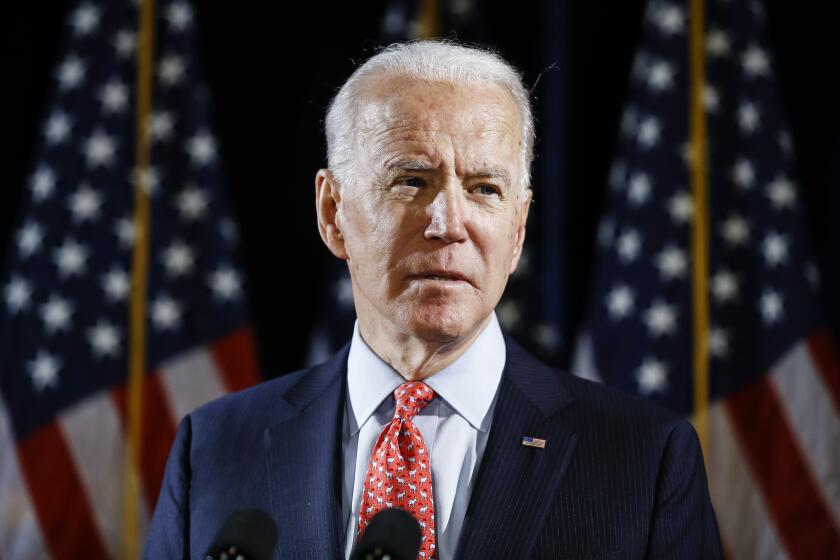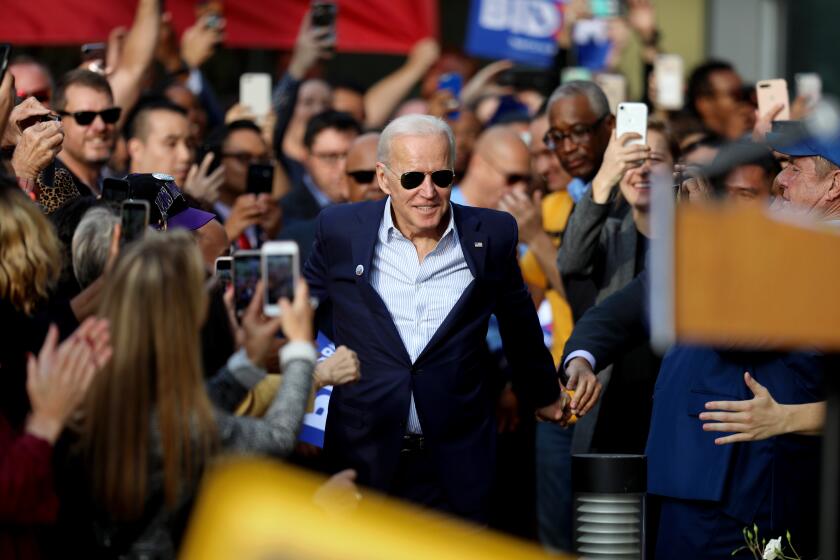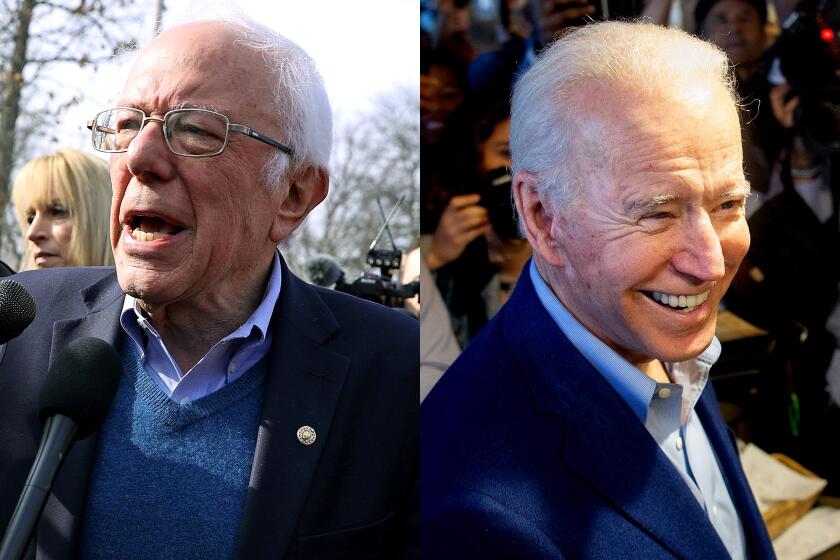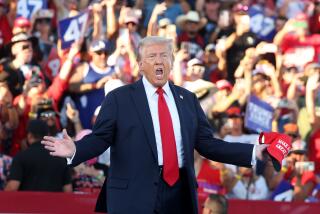Democratic presidential candidates woo Californians as the party faithful convene in Long Beach
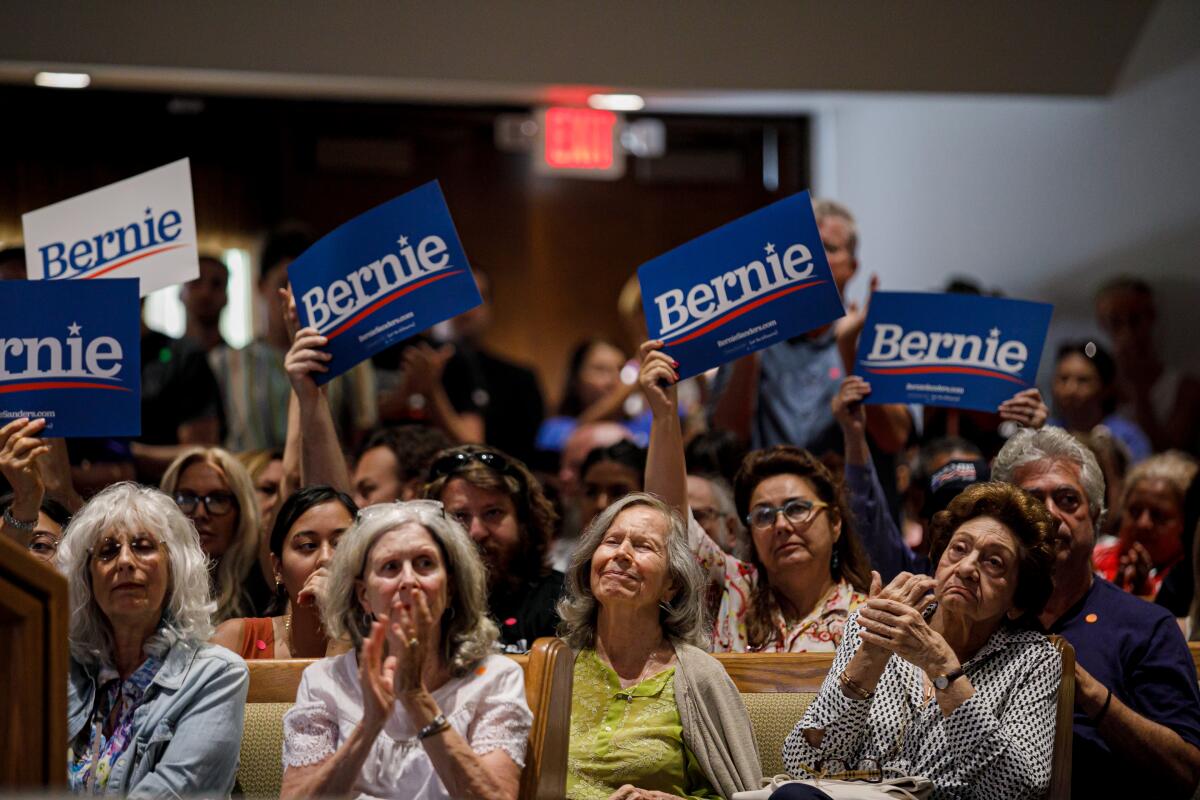
Kamala Harris plans to greet supporters at a historic Long Beach gay bar Friday, and Bernie Sanders will get backing from the East L.A. punk-funk band Ozomatli at a local rally Saturday. Amy Klobuchar met voters at a Bay Area brewery Thursday, and Joe Biden pitched his candidacy to young voters at Los Angeles Trade-Technical College.
More than a dozen presidential candidates are visiting California this week — an unusual amount of activity in a state that has been viewed primarily as a source of campaign dollars. Most of the top Democrats in the race, and a newcomer to the contest, are congregating this weekend to woo party leaders and activists at a state convention in Long Beach. Two front-runners, however — Massachusetts Sen. Elizabeth Warren and former Vice President Biden — are skipping the event.
Californians probably won’t see brightly painted campaign buses crisscrossing the state anytime soon. That’s a factor of the timing of other contests and how difficult it is to meet many of the voters in such a vast state. Even after the state moved the date up to March, its presidential primary still will probably be less of a decisive moment than a rubber stamp on the existing trends in the race.
“The only thing California accomplished by moving up our primary is making the first four states even more important,” said Dan Schnur, a political science professor at USC and UC Berkeley, referring to Iowa, New Hampshire, Nevada and South Carolina, which all vote in February. “We have Hollywood, we have Silicon Valley, we’ve got the beach and we’ve got the mountains. Let Iowa and New Hampshire have some fun.”
Candidates will be consumed with campaigning in those states, and then they will turn to the Super Tuesday states — more than a dozen, including California — that vote March 3.
The field is down to Joe Biden now that Bernie Sanders ended his presidential campaign. Here is the Democrat heading for a battle with President Trump.
“It’s a virtual national primary on March 3,” said Bill Carrick, a veteran Democratic strategist who is not aligned with any candidate in the presidential race. “I think when the campaigns do a cost-benefit analysis, it will be very sobering.”
Even if candidates could invest the time campaigning here that they do in states like Iowa and New Hampshire, they still wouldn’t be able to reach more than a small fraction of California’s 20.3 million registered voters — unless they spent big on television advertising.
“Who can afford California? It’s the biggest, most expensive state across the board,” said Sheri Sadler, a veteran Democratic media consultant.
California contains the most expensive media markets in the nation, notably L.A., San Francisco and San Diego, and a substantive statewide media buy could cost millions of dollars per week, Sadler said. She expects to see candidates start advertising in mid- to late January: “It’s fascinating. I don’t know who’s going to jump in first.”
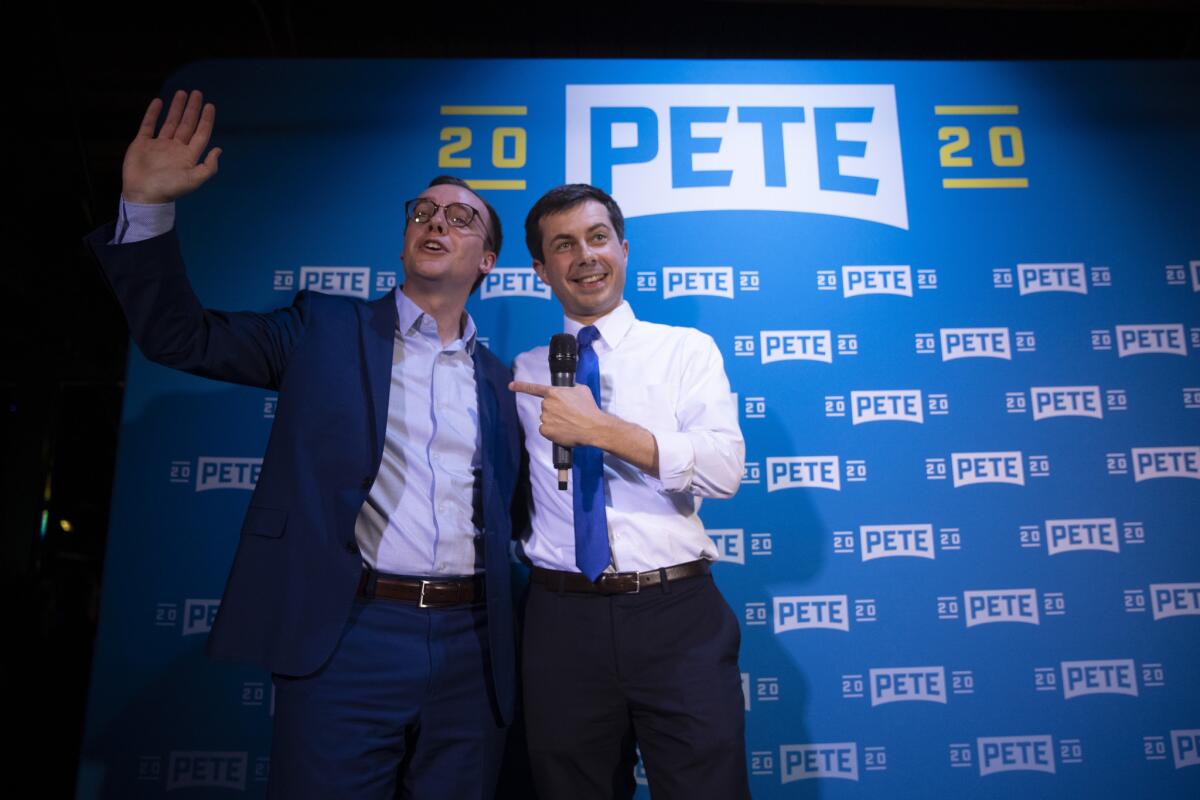
Several campaigns are hiring staff and opening field offices in the state, no one more aggressively than Sanders. The Vermont senator has 40 paid staff members in the state, the most of any campaign. Sanders has said California is crucial to his path to securing the Democratic nomination.
“I need your help to win here in California, because the candidate who wins here in the largest state in the country will, in all likelihood, win the nomination,” Sanders said at a rally in Sacramento in August. “And when we win the nomination, we will have to work like hell.”
Recent polls show a three-way contest in the state among Sanders, Biden and Warren.
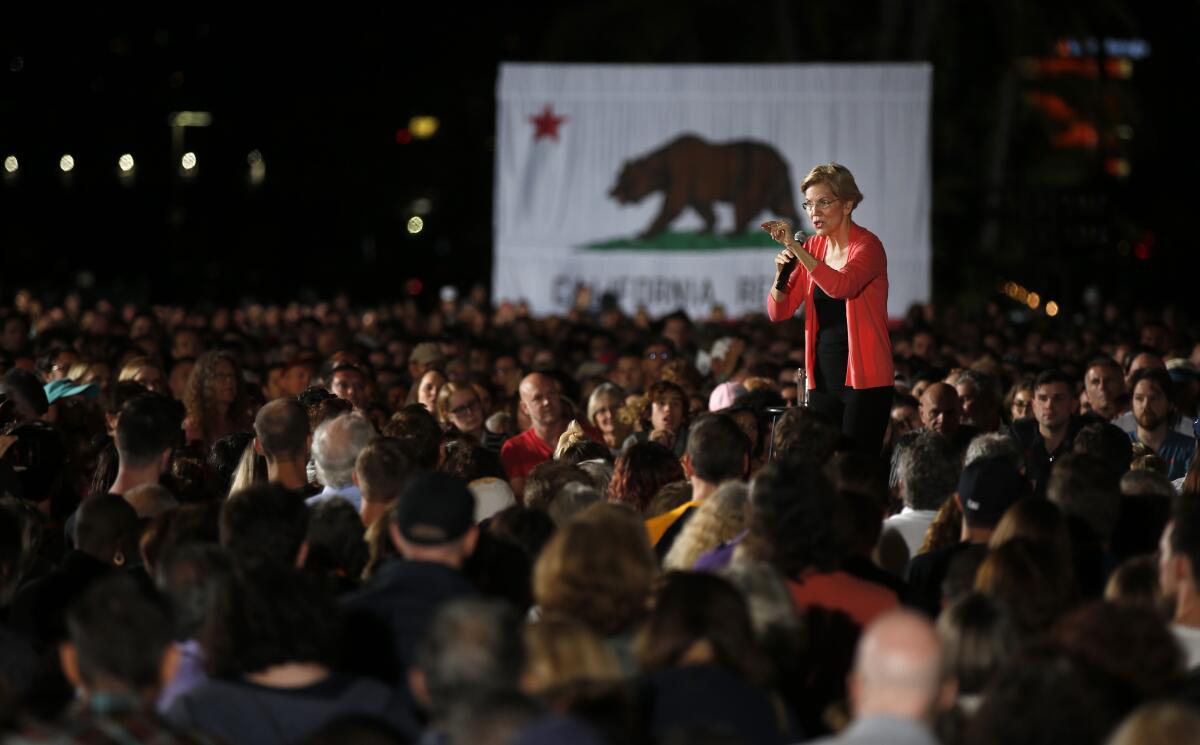
But the way the bulk of California’s 495 voting delegates — the most from any state — are awarded means candidates who are not polling high still have opportunities to win delegates by micro-targeting their most likely supporters. The state’s 53 congressional districts each have up to nine delegates, and each candidate with 15% or more of the district’s votes is guaranteed at least one of its delegates.
“The reality is this is about delegate accumulation,” said Pete Kavanaugh, Biden’s deputy campaign manager. “We are looking at this almost on a congressional-district-by-congressional-district basis.”
He said Biden is uniquely positioned to do well in the state because he has the ability to cross the 15% threshold in every district.
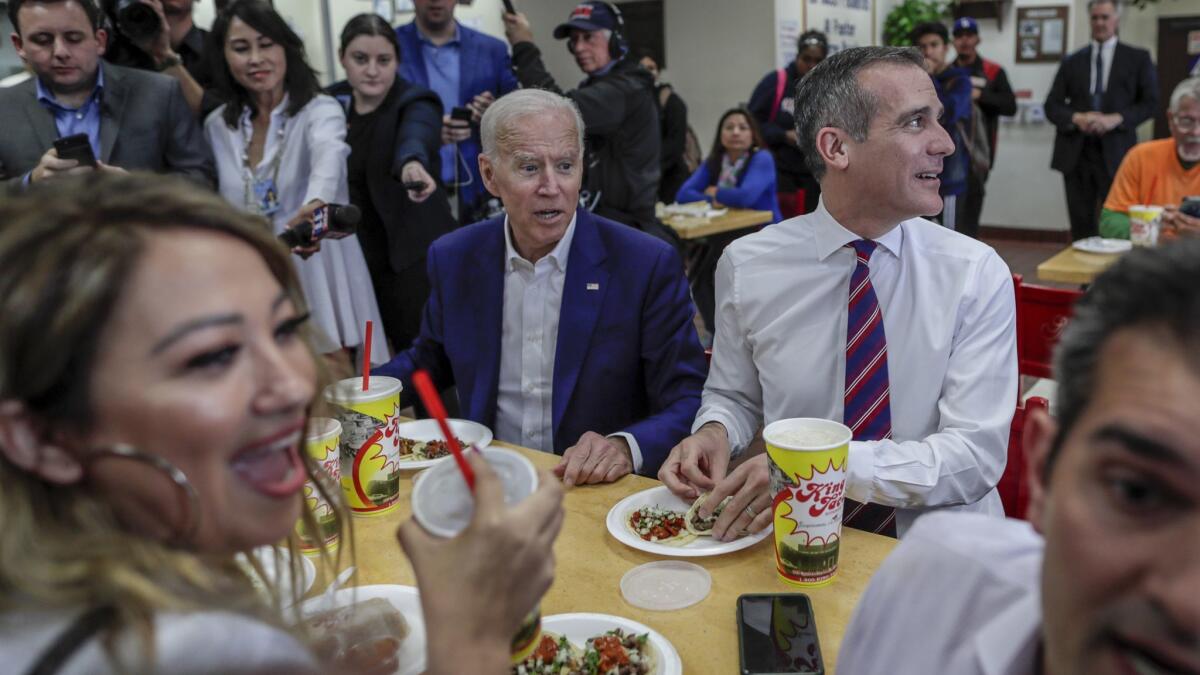
Biden has spent significant time in California raising money, but has not attended Democratic Party gatherings or held large public events with voters. He held his first rally in the state Thursday, at Los Angeles Trade-Technical College.
Joe Biden raged at the gun lobby, congressional Republicans and President Trump as he spoke about the deadly Saugus High School shooting. Biden held his first rally in California since he joined the 2020 presidential race.
Other candidates, notably Sanders, Warren and South Bend, Ind., Mayor Pete Buttigieg, have held several rallies and other public events around the state. Some are getting together with voters in advance of the California Democratic Party convention this weekend — including Harris, who plans to greet voters at Portuguese Bend Distilling and Hamburger Mary’s in Long Beach on Friday night.
When Harris first entered the race, political experts thought California’s junior senator may have a home-state advantage. But she has fallen in the polls in the state, as she has nationally. Harris has since gone all in in Iowa, moving staff members from here and elsewhere to the first-to-vote Hawkeye State.
If she does better than expected in the early states and has momentum going into Super Tuesday, Californians may rally around her, said Dan Newman, a Democratic strategist who previously worked for Harris’ campaigns for attorney general and Senate but is not affiliated with her presidential campaign.
“Home state pride in the past has never been enough on its own to carry somebody,” he said. But “if she exceeds expectations in Iowa and South Carolina, and then gets voters to tap into some state pride … that would be the path.”
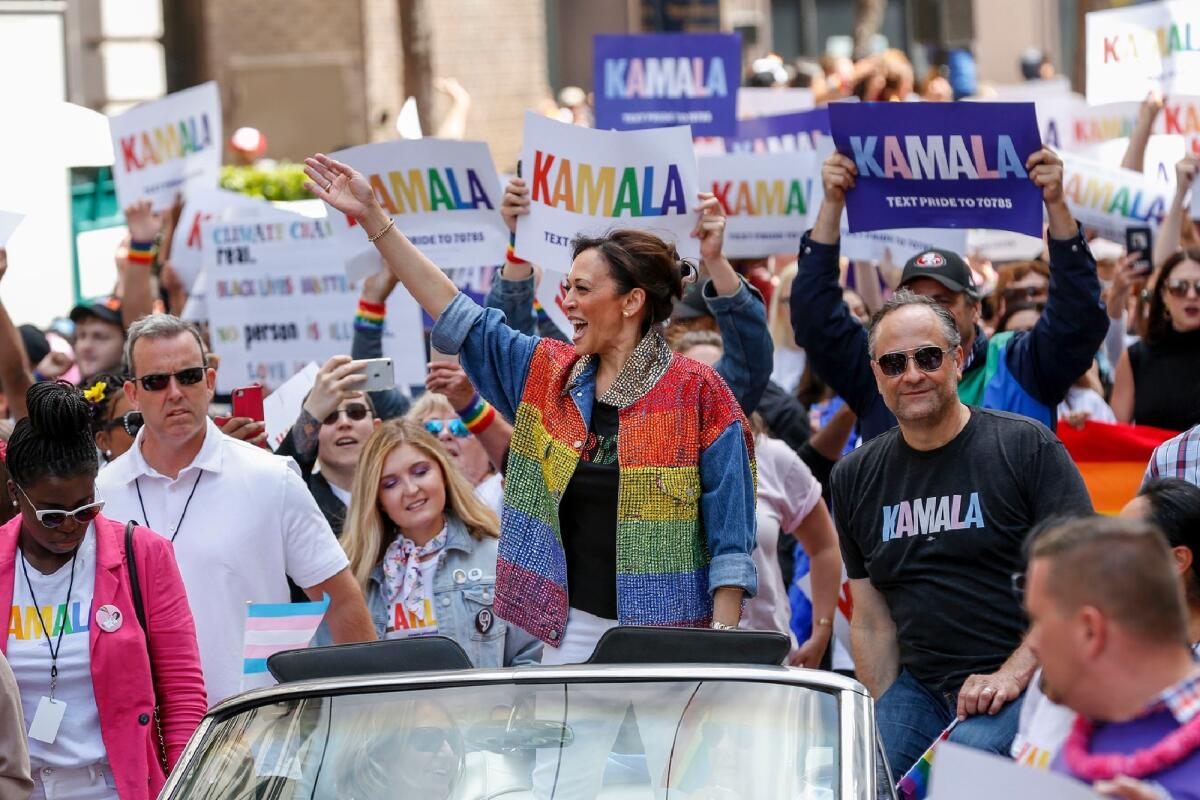
Harris is one of eight candidates chosen to take part in the Real America Presidential Forum sponsored by the state party and Univision News at the convention on Saturday. New Jersey Sen. Corey Booker, former Obama Housing Secretary Julián Castro, billionaire Tom Steyer, businessman Andrew Yang, Minnesota Sen. Klobuchar, Buttigieg and Sanders are also participating.
Three candidates who didn’t do well enough — in polling and support from grass-roots donors — to make the cut for the forum will address convention-goers earlier in the day. They are self-help author Marianne Williamson and former Reps. John Delaney of Maryland and Joe Sestak of Pennsylvania.
Former Massachusetts Gov. Deval Patrick, who announced his surprise late entry into the presidential race Thursday, will speak at the convention Saturday morning and take questions from reporters. The appearance will be his first speech in front of a large group of voters since entering the contest. He previously released a video announcing his bid, did several media interviews and met with voters in Manchester, N.H., after filing for a spot in that state’s primary.
Biden and Warren’s decision not to attend the convention drew condemnation from state party Chairman Rusty Hicks, who called it a “snub” of California Democrats and Latinos.
The candidates’ campaigns said scheduling conflicts got in the way: Biden will be stumping in Nevada, and Warren will be rallying voters in Iowa.
Here are key dates and events on the the 2020 presidential election calendar, including dates of debates, caucuses, primaries and conventions.
More to Read
Get the L.A. Times Politics newsletter
Deeply reported insights into legislation, politics and policy from Sacramento, Washington and beyond. In your inbox three times per week.
You may occasionally receive promotional content from the Los Angeles Times.

